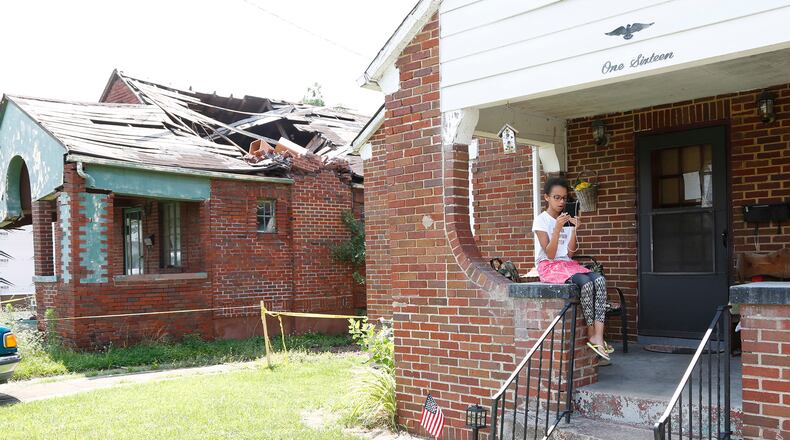Skinner said the clock starts when an applicant receives his or her first determination letter.
The federal disaster declaration resulting from a record-setting 21 Memorial Day tornadoes across the state has resulted in 6,747 people or households applying for FEMA assistance, according to the agency. Of those, 4,613 came from Montgomery County.
Currently 1,805 applicants are labeled ineligible pending insurance settlement information. So far, 88 have provided settlement information but FEMA’s determination remains unclear. Some may have received a positive insurance settlement, Skinner said.
FEMA cannot duplicate insurance payments, but it may be able to help where homeowners and/or flood insurance did not. Individual assistance may still be available if:
• A survivor was denied insurance by their insurance company.
• Or an insurance claim has been settled and FEMA can be shown the settlement didn’t cover essential needs.
The first step for a survivor is to contact their insurance company, according to FEMA.
Depending on where an insurance claim is in the process, survivors should request:
• A denial letter showing proof that an insurance company is not covering a claim.
• A settlement letter describing what is being covered by the insurance company.
• A delay letter showing there has been no official decision yet by an insurance company on a claim, and it has been more than 30 days from the time the claim was filed.
The amount of assistance is determined decided by FEMA based on the specifics of each application, including the documentation provided by the applicant.
There is no guarantee that everyone who suffered damage and was denied Individual Assistance by FEMA because of insurance coverage that then came up short will receive help, according to FEMA.
Applicants have up to 12 months from the date registered with FEMA to submit insurance-settlement records for review. In addition, tornado survivors have up to 12 months from the date they registered with FEMA to appeal denials because of insurance issues.
Survivors who registered with FEMA by the Sept. 3 individual assistance deadline may be eligible for housing assistance and other needs assistance, also known as ONA. Housing assistance could include help with rentals, home repairs, home replacements and direct housing.
ONA could also include help with personal property, medical expenses, dental expenses, miscellaneous items such as chain saws, dehumidifiers and generators. Other needs might also be funeral, child care and transportation expenses.
Survivors who registered solely through the U.S. Small Business Administration (SBA) by its Sept. 3 disaster-assistance loan program deadline may be eligible for help through FEMA individual assistance with rentals, medical expenses, dental expenses, a funeral and child care.
Documentation can be submitted online at DisasterAssistance.gov, or sent by mail to:
FEMA – Individuals and Households Program National Processing Service Center P.O. Box 10055 Hyattsville, MD 20782-7055
Documents can also be faxed to:
800-827-8112 Attention: FEMA – Individuals and Households Program
Additionally, if an insurance settlement has been delayed longer than 30 days from when a claim was filed, a survivor may still get assistance by writing to FEMA and explaining the reason for the delay, Skinner said.
“They may be able to get money in the interim based on the status of their insurance claim, but they need to make that clear in their appeal process,” he said. “But once they get their insurance settlement, they’re going to have to repay that. That’s a decision they are going to have to make.”
Documentation should include the insurance company’s delay letter, according to FEMA.
FEMA’s helpline is available for more information and answers to questions about insurance-denial or insurance-settlement documentation at 800-621-3362 (TTY 800-462-7585). Phone lines are open from 7 a.m. until 10 p.m. EDT until further notice. Multilingual operators are on duty.
About the Author

